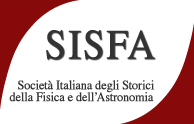Speaker
Description
In this talk I will make a case for the pertinence of a biographical approach to the history of the concept of ether. In the first half of the talk, I will lay out the rationale of that approach by revisiting and extending my earlier work on the topic. I will consider the characteristics of scientific objects that motivate the biographical metaphor, and I will indicate its virtues and limitations by bringing out the positive and negative analogies between biographies of scientific objects and ordinary biographies. I will then point out various ways in which scientific objects may pass away and argue that their demise should be conceptualized as a process. In the second half of the talk, I will sketch the history of the concept of ether in 19th and early 20th century physics and suggest that it lends itself particularly well to a biographical treatment. To that effect, I will discuss three aspects of the ether: its identity over time, its heuristic role in the practice of physics, and its recalcitrance as an object of theoretical and experimental research. Finally, I will close by examining the reasons that may have led to the ether’s passing.

